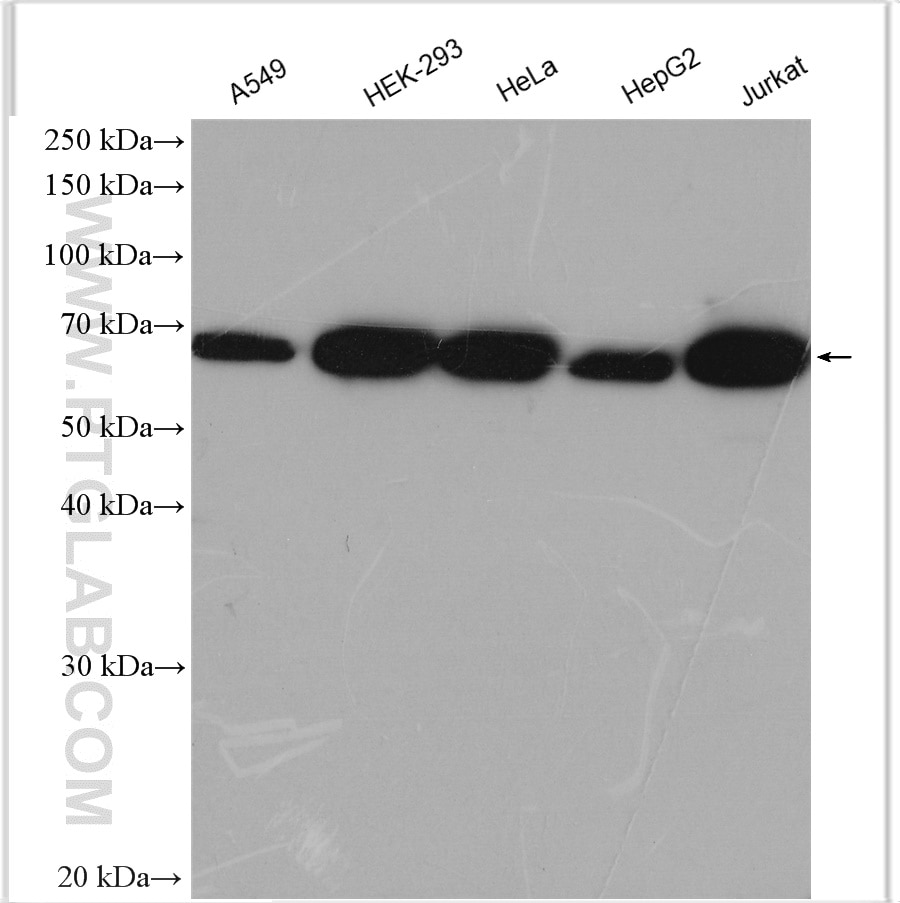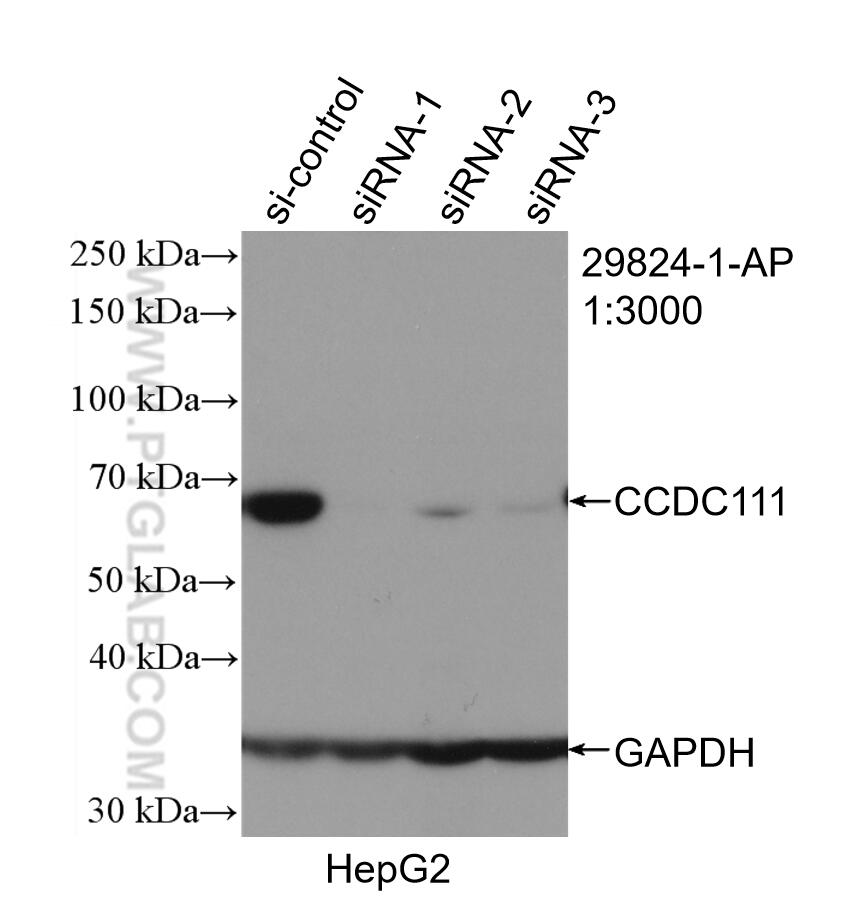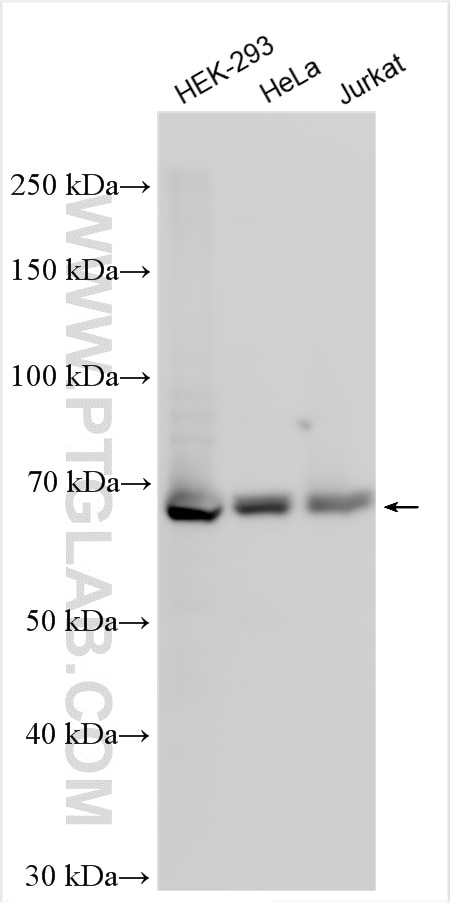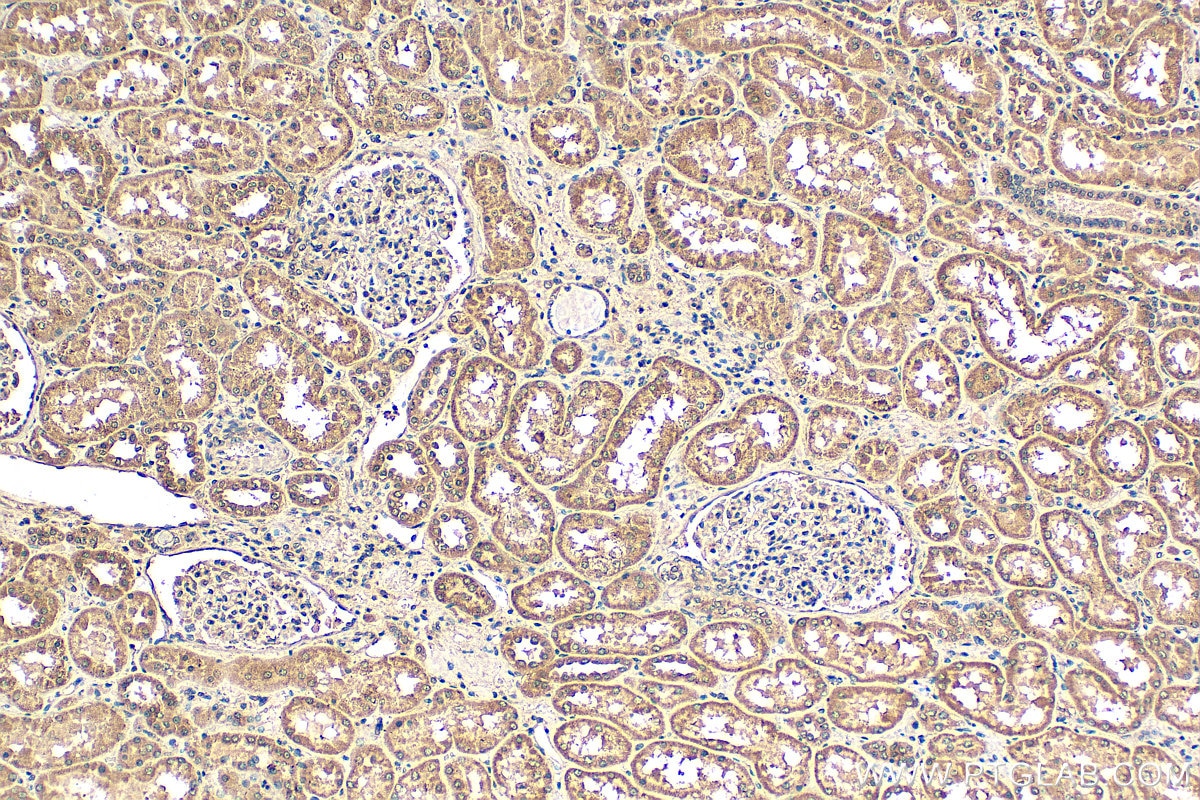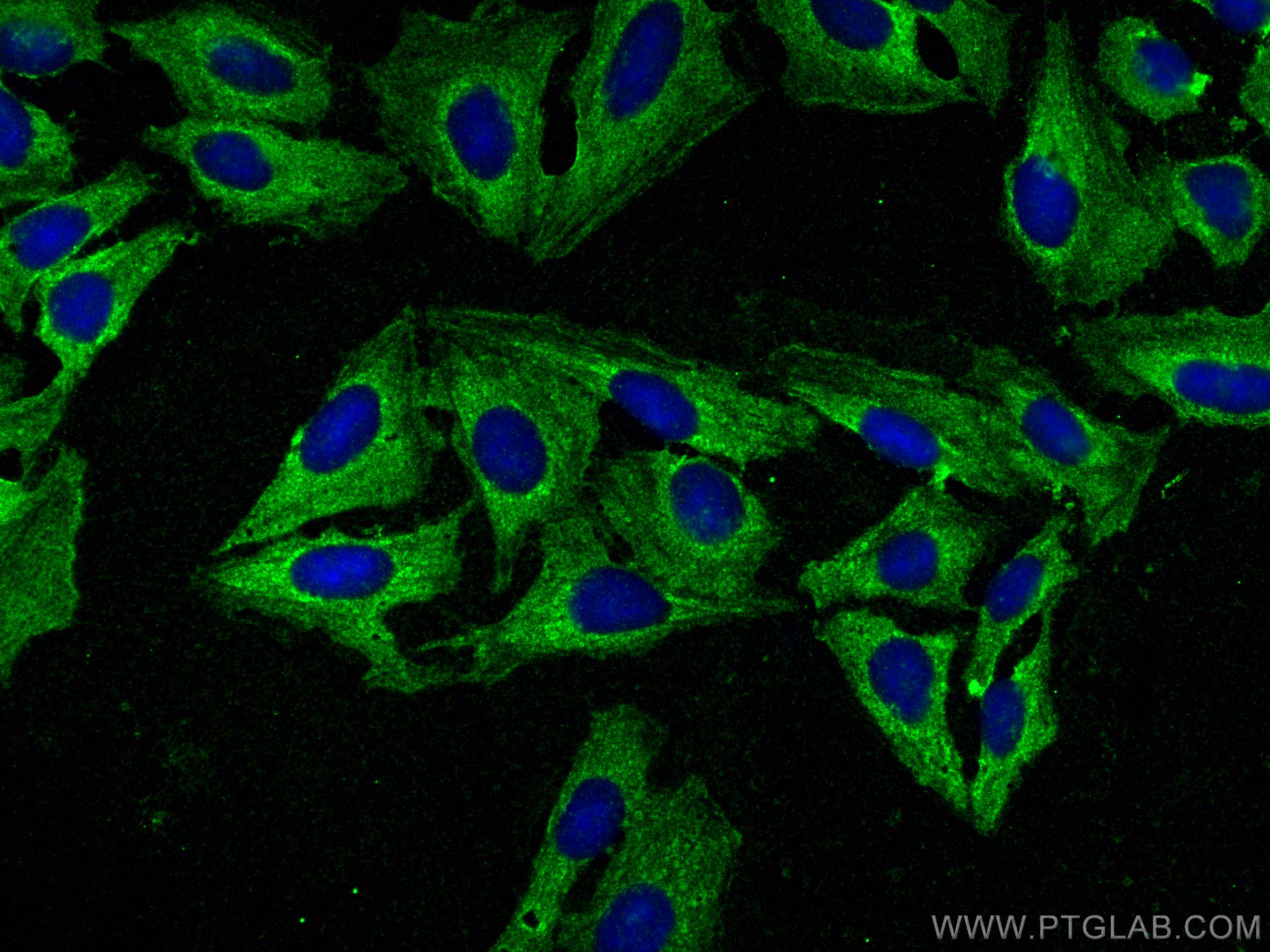Validation Data Gallery
Tested Applications
| Positive WB detected in | A549 cells, HEK-293 cells, HepG2 cells, HeLa cells, Jurkat cells |
| Positive IHC detected in | human kidney tissue Note: suggested antigen retrieval with TE buffer pH 9.0; (*) Alternatively, antigen retrieval may be performed with citrate buffer pH 6.0 |
| Positive IF/ICC detected in | U2OS cells |
Recommended dilution
| Application | Dilution |
|---|---|
| Western Blot (WB) | WB : 1:1000-1:4000 |
| Immunohistochemistry (IHC) | IHC : 1:50-1:500 |
| Immunofluorescence (IF)/ICC | IF/ICC : 1:200-1:800 |
| It is recommended that this reagent should be titrated in each testing system to obtain optimal results. | |
| Sample-dependent, Check data in validation data gallery. | |
Published Applications
| KD/KO | See 5 publications below |
| WB | See 17 publications below |
| IF | See 1 publications below |
Product Information
29824-1-AP targets CCDC111/PRIMPOL in WB, IHC, IF/ICC, ELISA applications and shows reactivity with Human samples.
| Tested Reactivity | Human |
| Cited Reactivity | human |
| Host / Isotype | Rabbit / IgG |
| Class | Polyclonal |
| Type | Antibody |
| Immunogen |
CatNo: Ag31478 Product name: Recombinant human CCDC111 protein Source: e coli.-derived, PGEX-4T Tag: GST Domain: 305-560 aa of BC064600 Sequence: EVTEDNKFFPIQSKDVSDEYQYFLSSLVSNVRFSDTLRILTCEPSQNKQKGVGYFNSIGTSVETIEGFQCSPYPEVDHFVLSLVNKDGIKGGIRRWNYFFPEELLVYDICKYRWCENIGRAHKSNNIMILVDLKNEVWYQKCHDPVCKAENFKSDCFPLPAEVCLLFLFKEEEEFTTDEADETRSNETQNPHKPSPSRLSTGASADAVWDNGIDDAYFLEATEDAELAEAAENSLLSYNSEVDEIPDELIIEVLQE 相同性解析による交差性が予測される生物種 |
| Full Name | coiled-coil domain containing 111 |
| Observed molecular weight | 64 kDa |
| GenBank accession number | BC064600 |
| Gene Symbol | CCDC111/PRIMPOL |
| Gene ID (NCBI) | 201973 |
| RRID | AB_2918349 |
| Conjugate | Unconjugated |
| Form | |
| Form | Liquid |
| Purification Method | Antigen affinity purification |
| UNIPROT ID | Q96LW4 |
| Storage Buffer | PBS with 0.02% sodium azide and 50% glycerol{{ptg:BufferTemp}}7.3 |
| Storage Conditions | Store at -20°C. Stable for one year after shipment. Aliquoting is unnecessary for -20oC storage. |
Background Information
CCDC111, also known as PRIMPOL, FLJ33167, which contains the active-site motifs of AEP primases and a putative Zn finger similar to that of herpesvirus UL52 primase and other AEP-like enzymes. CCDC111 is required to facilitate mitochondrial and nuclear replication fork progression by initiating de novo DNA synthesis using dNTPs and acting as an error-prone DNA polymerase able to bypass certain DNA lesions (PMID: 24126761, PMID: 24207056). In addition to its role in DNA damage response, also required to maintain efficient nuclear and mitochondrial DNA replication in unperturbed cells (Uniprot, PMID: 30715459).
Protocols
| Product Specific Protocols | |
|---|---|
| IF protocol for CCDC111/PRIMPOL antibody 29824-1-AP | Download protocol |
| IHC protocol for CCDC111/PRIMPOL antibody 29824-1-AP | Download protocol |
| WB protocol for CCDC111/PRIMPOL antibody 29824-1-AP | Download protocol |
| Standard Protocols | |
|---|---|
| Click here to view our Standard Protocols |
Publications
| Species | Application | Title |
|---|---|---|
Nat Commun An ATR-PrimPol pathway confers tolerance to oncogenic KRAS-induced and heterochromatin-associated replication stress | ||
Nat Commun Multi-step processing of replication stress-derived nascent strand DNA gaps by MRE11 and EXO1 nucleases | ||
Int J Mol Sci CSB Regulates Pathway Choice in Response to DNA Replication Stress Induced by Camptothecin | ||
bioRxiv CRISPR knockout genome-wide screens identify the HELQ-RAD52 axis in regulating the repair of cisplatin-induced single stranded DNA gaps | ||
Nucleic Acids Res CSB and SMARCAL1 compete for RPA32 at stalled forks and differentially control the fate of stalled forks in BRCA2-deficient cells |

